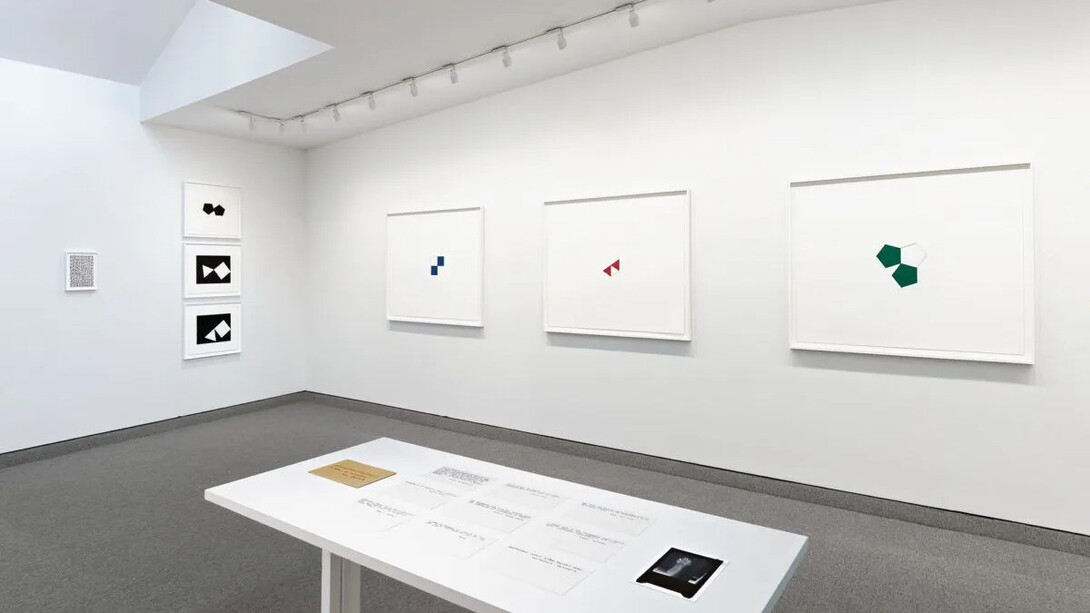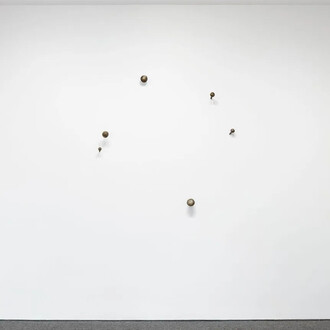Those works of art which I value are the ones produced by the mind for its own use. Their beginnings are usually found in contradiction or irresolution. A work’s meaning is the materialization of the difficulties encountered and suspended in striving for clarity.
(Mel Bochner)
In 2003, Mel Bochner explained to me his deep belief in the importance of printmaking and his strong commitment to the processes therein. He also described how he felt he had a very strong body of work from the 1970s that had not been seen much. Over the years, as we continued to converse, the importance of that era of his work grew and grew in my eye, mind, and heart.
In the early 2010s, our gallery embarked on the project of the Mel Bochner Catalogue Raisonné of Editioned Prints. (I should make sure to pause here and mention that David and Evie Lasry, along with Mel, myriad printers, publishers, assistants, our gallery staff and of course, Barbara Krakow were all so important to the making of the catalogue.) In doing that research, it became clear to me that (no surprise) Mel was right and the 1970s work needed to be seen, but the question was how to do so when there were virtually no examples on the market.
This led to a decade-long search for each of the editions that Mel made between 1970 and 1979. By the fall of 2024, we had confirmed the location of every edition and acquired impressions. However, we needed to get them all to the gallery and that would still take some time and effort. On January 30, two weeks before Mel passed, he asked, “So have they all arrived?” and I explained that they almost all had, but we were a few weeks away from having the complete group in-house. He replied that he was happy to know that they would be shown all together. Sadly, Mel passed a week before we had them all in hand. Normally, when a work of his arrived, he and I would have a long conversation about it, where it came from, and where he went or may go next (depending upon if it was an old or new work). In going through the pieces that arrived in February, I had a new experience. I could not ask him questions, pepper him with thoughts, or revel in his creativity, generosity, and wisdom.
With Mel’s passing, his widow, Lizbeth Marano, felt that this show had been so long in the making that it should not be delayed any further, and so we are proud to present to the public the first complete presentation of Mel Bochner’s prints from the 1970s. While, quite sadly, we can no longer ask Mel in person, the work he left behind is both to be asked of and asks of us so much. May this exhibition be merely the first of an era of shows where Mel Bochner’s works speak for themselves, and where we, as a viewing public, can deepen our appreciation of Mel in their presence.
I would be remiss in not stating that Bob Feldman’s legacy looms large, as well, and this show would never have happened without him approaching Mel to collaborate on making prints. In Mel’s words,“In 1973, Robert Feldman, the publisher of Parasol Press, invited me to make an etching. This seemed like a bizarre idea to me, since at the time I couldn’t even sell a drawing. ‘So why,’ I asked him, ‘would anyone be interested in buying something of which there were multiple copies?’ ‘That’s my problem,’ he answered, ‘your problem is just to make the print.’”
(Special thanks to Lizbeth Marano and Julia Mangold)
(Text by Andrew Witkin)
A sense of doubt is a critical force behind Bochner’s practice, guided as he is by a consciousness of the impossibility of finding simple or immediate answers to most questions worth asking.
(Ruth Fine)
















